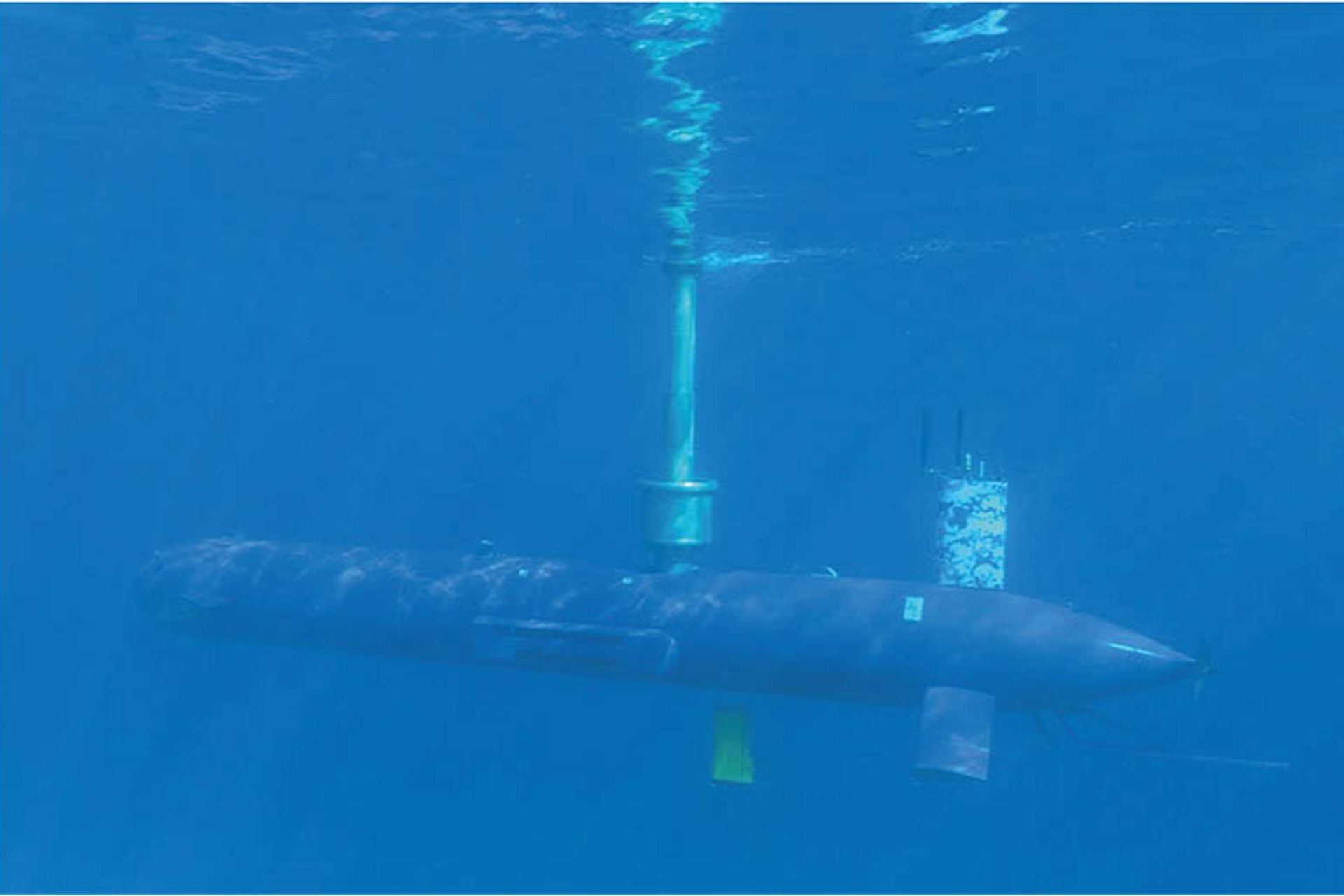Breaking News
BlueWhale Submarine Trials Highlight German-Israeli Defense Collaboration.
According to a PR published by Israel Aerospace Industries on November 26, 2024, the German Navy recently completed a two-week operational trial of the BlueWhale autonomous submarine, an innovation developed by Israel Aerospace Industries (IAI) in collaboration with Germany’s Atlas Elektronik.
Follow Army Recognition on Google News at this link

Pioneering the Future of Naval Defense: The German Navy's successful trial of the BlueWhale autonomous submarine in the Baltic Sea marks a major leap in unmanned maritime technology under the Marine 2035 initiative. (Picture source: Israel Aerospace Industries)
The BlueWhale, measuring 10.9 meters in length and weighing 5.5 tons, is equipped with advanced radar and electro-optical systems mounted on a telescopic mast. These enable the submarine to detect and monitor sea and land targets in real-time, providing critical intelligence to command centers globally. Additionally, its sonar systems are designed for submarine detection and mine mapping under challenging conditions.
During the trial, the submarine demonstrated its capabilities in real-time intelligence collection, submarine detection, and seafloor mine mapping. The German Navy’s operational and research divisions, alongside the WTD 71 technology center, rigorously evaluated the submarine's performance. One of the BlueWhale’s standout features is its ability to conduct complex missions for several weeks without the need for onboard operators.
Comparison with other underwater vehicles
In comparison, the REMUS series, including models like REMUS 6000, 600, and 300, offers varying depth capabilities and endurance tailored for specific mission profiles. The REMUS 6000 stands out with its ability to operate at extreme depths of up to 6000 meters, although with significantly shorter endurance compared to the BlueWhale. These UUVs are compact and optimized for deep-sea exploration and data collection but lack the extensive endurance of the BlueWhale for prolonged missions.
The Orca XLUUV, developed by Boeing, is a much larger and more robust system. With a range exceeding 6,500 nautical miles and depth capabilities surpassing 3,000 meters, it offers unmatched mission flexibility due to its modular design, supporting payloads for electronic warfare, sonar systems, and even weapons. While the Orca exceeds the BlueWhale in terms of range, depth, and payload flexibility, it is also significantly larger and more complex.
The BlueWhale strikes a balance between the operational depth of the REMUS series and the mission flexibility of the Orca XLUUV. It excels in littoral and mid-range missions, offering a sensor suite and considerable endurance for intelligence and mine countermeasure tasks. Although it does not match the extreme depth or range of its counterparts, it remains a robust and capable solution for diverse naval applications.
German Navy
The German Navy's mission to secure the North and Baltic Seas is a cornerstone of its operational strategy, given the critical importance of these waters for Europe’s economic and military stability. These seas are vital arteries for trade and energy supplies, making them strategic zones for both commerce and defense.


























